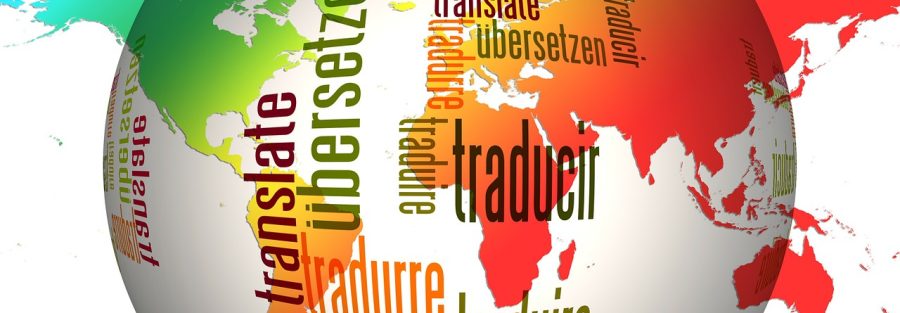The Importance of Professionalism in Medical Interpreting
Professionalism is an essential aspect of medical interpreting that cannot be overlooked. In this field, interpreters play a crucial role in facilitating effective communication between healthcare providers and patients who speak different languages. Maintaining professionalism ensures that the interpretation process is conducted with the highest level of integrity and respect for all parties involved. This includes adhering to professional standards of behavior, such as maintaining confidentiality, impartiality, and cultural sensitivity throughout the interpreting session.
Moreover, professionalism in medical interpreting contributes to the overall quality and accuracy of healthcare delivery. Interpreters who uphold professionalism strive to provide accurate and precise interpretations, ensuring that no information is lost or misinterpreted in the communication process. By staying committed to their role as impartial facilitators, interpreters assist healthcare providers in obtaining a comprehensive understanding of their patients’ medical conditions, needs, and concerns. This, in turn, allows for improved patient safety, informed decision-making, and the provision of appropriate healthcare services.
Enhancing Communication Between Healthcare Providers and Patients
Effective communication between healthcare providers and patients is essential for providing quality healthcare services. When there is a language barrier present, however, this can pose a significant challenge. This is where professional medical interpreters come into play, as they play a crucial role in enhancing communication between healthcare providers and patients.
One of the primary ways in which medical interpreters enhance communication is by accurately conveying the medical information between the healthcare provider and the patient. They ensure that all relevant medical terms, diagnoses, and treatment options are accurately translated, reducing the risk of misunderstandings or misinterpretations. This ensures that patients fully understand their medical condition and the recommended treatment plan, enabling them to make informed decisions about their healthcare. Additionally, by serving as a cultural bridge, medical interpreters help to foster trust and rapport between patients and healthcare providers, creating a more positive and empathetic healthcare experience for both parties.
Ensuring Accuracy and Precision in Medical Interpretation
For medical interpreters, ensuring accuracy and precision in their work is of utmost importance. These language experts play a crucial role in facilitating effective communication between healthcare providers and patients who speak different languages. The accuracy of the interpretation is essential to relay vital medical information accurately and comprehensively. Even small errors or misinterpretations can have significant consequences, leading to misunderstandings, misdiagnoses, or incorrect treatments.
To ensure accuracy and precision, medical interpreters must possess excellent language skills and a deep understanding of medical terminology. They must have a solid grasp of both the source language (the patient’s language) and the target language (the healthcare provider’s language) to accurately translate medical jargon, complex diagnoses, and treatment plans. Additionally, interpreters need to continuously update their knowledge of medical advancements and terminologies to provide accurate interpretations in an ever-evolving healthcare landscape. Proper training and ongoing professional development are crucial for medical interpreters to maintain and enhance their language skills, cultural knowledge, and subject expertise. By prioritizing accuracy and precision, these professionals actively contribute to effective and safe communication in healthcare settings.
Improving Patient Safety and Quality of Care
Patient safety and quality of care are crucial aspects of healthcare delivery that can be significantly enhanced through effective medical interpreting. In a healthcare setting, clear and accurate communication plays a pivotal role in ensuring that patients receive the appropriate care and treatment they need. When language barriers are present, the use of professional medical interpreters becomes imperative to bridge this gap and facilitate effective communication between healthcare providers and patients.
Through the presence of a qualified medical interpreter, misunderstandings and misinterpretations can be minimized, reducing the risk of medical errors and improving patient safety. Medical interpreters not only serve as language facilitators but also as cultural brokers, helping patients better understand the healthcare system, adhere to treatment plans, and make informed decisions about their health. By ensuring accurate interpretation of medical information and instructions, medical interpreters contribute to the overall quality of care provided, ultimately leading to better patient outcomes.
Meeting Legal and Ethical Standards in Medical Interpreting
In the realm of medical interpreting, meeting legal and ethical standards holds paramount importance. Professional interpreters are entrusted with the critical task of accurately conveying medical information between healthcare providers and patients who have limited English proficiency. However, this responsibility extends beyond mere language proficiency, as interpreters must also adhere to legal and ethical principles in their practice.
Legal standards in medical interpreting entail understanding and abiding by the laws and regulations governing the use of interpreters in healthcare settings. This includes knowledge of federal and state laws, such as the Affordable Care Act, which mandate the provision of language services to ensure effective communication with patients. Ethical standards, on the other hand, encompass a broader set of principles that guide interpreters’ conduct, such as confidentiality, impartiality, and transparency. Upholding these standards not only protects the rights and privacy of patients but also ensures the integrity of the healthcare profession as a whole.
Bridging Language and Cultural Barriers in Healthcare Settings
Bridging language and cultural barriers in healthcare settings is crucial to ensure effective communication between healthcare providers and patients from diverse backgrounds. Language barriers, resulting from patients speaking different languages, can hinder accurate understanding and exchange of vital healthcare information. Similarly, cultural barriers can arise from differences in beliefs, customs, and traditions, leading to potential misunderstandings and misinterpretations of medical advice and treatment options.
To address these challenges, medical interpreters play a key role in facilitating communication between healthcare professionals and patients who do not share a common language. They serve as crucial intermediaries, translating medical terminology, explanations, and questions to ensure that patients fully comprehend their diagnosis, treatment plan, and any related instructions. Moreover, these interpreters are well-versed in navigating cultural sensitivities, helping to bridge the gap between different cultural norms and expectations in healthcare settings. By doing so, medical interpreters facilitate a more inclusive and patient-centered approach to healthcare, where everyone can fully participate in the decision-making process and receive the necessary care and support.
Recognizing the Role of Medical Interpreters in Healthcare Teams
Medical interpreters play a crucial role in healthcare teams by bridging the language barrier and facilitating effective communication between healthcare providers and patients. As diverse communities continue to grow and interact with the healthcare system, the need for interpreters who can accurately convey medical information becomes increasingly important. These skilled professionals ensure that every patient, regardless of their language proficiency, has the opportunity to fully understand their diagnosis, treatment options, and overall healthcare plan.
By being fluent in both the source language (the patient’s language) and the target language (the healthcare provider’s language), medical interpreters enable clear and accurate communication. They not only interpret verbal exchanges but also translate medical documents, such as consent forms and discharge instructions. This comprehensive language support helps healthcare teams improve patient understanding, compliance, and overall outcomes. Moreover, medical interpreters serve as cultural brokers, recognizing the nuances and sensitivities that arise from diverse cultural backgrounds. This understanding allows them to navigate sensitive topics and ensure that patients feel heard, respected, and understood throughout their healthcare journey.
Promoting Cultural Competence and Sensitivity in Healthcare Delivery
Cultural competence and sensitivity are crucial in healthcare delivery to ensure that patients from diverse backgrounds receive the highest quality of care. Recognizing and respecting the unique cultural beliefs, values, and practices of patients is essential for effective communication and building trust. By promoting cultural competence, healthcare providers can better understand and respond to the specific needs and preferences of their patients, leading to improved patient satisfaction and outcomes.
One way to promote cultural competence in healthcare delivery is through the use of trained medical interpreters. These interpreters not only bridge the language barrier between healthcare providers and patients but also serve as cultural liaisons. They are knowledgeable about cultural norms, beliefs, and practices, enabling them to accurately convey patients’ concerns and preferences to healthcare providers. By having access to competent interpreters, healthcare providers can ensure that patients receive the appropriate care that aligns with their cultural background, enhancing the overall quality of care and patient experience.
Addressing the Growing Demand for Qualified Medical Interpreters
The demand for qualified medical interpreters is on the rise, parallel to the increasing diversity of patient populations in healthcare settings. As the world becomes more interconnected, healthcare providers are encountering patients from various linguistic backgrounds, making effective communication a vital aspect of healthcare delivery. Qualified medical interpreters play a crucial role in bridging language barriers and facilitating clear and accurate communication between healthcare providers and patients.
With the growing demand for qualified medical interpreters, healthcare institutions are recognizing the need to prioritize language access services. By ensuring that patients can communicate effectively with their healthcare providers, the quality of care and patient safety can be significantly improved. Furthermore, having qualified interpreters can help healthcare providers gather accurate medical histories, understand patients’ symptoms and concerns, and ensure that patients fully comprehend their diagnosis, treatment options, and healthcare instructions. Meeting the increasing demand for qualified medical interpreters is essential to ensure equitable access to healthcare and improve health outcomes for linguistically diverse populations.
Advancing Career Opportunities and Professional Growth in Medical Interpreting
Medical interpreting is a profession that offers numerous career opportunities and avenues for professional growth. As healthcare institutions strive to provide language-accessible care, the demand for qualified medical interpreters continues to grow. This increased demand creates a favorable job market for individuals seeking a career in medical interpreting.
With the expanding need for medical interpreters, professionals in this field have the opportunity to work in various healthcare settings. Hospitals, clinics, private practices, and even telehealth services are seeking qualified interpreters to ensure effective communication between healthcare providers and patients with limited English proficiency.
Moreover, as the importance of language access becomes increasingly recognized, there is a growing recognition of the vital role that medical interpreters play in healthcare teams. Interpreters are being integrated into interdisciplinary teams, working alongside physicians, nurses, and other healthcare providers to ensure that patients receive the best possible care.
For individuals looking to advance their careers in medical interpreting, there are opportunities for specialization and further education. Certification programs and professional organizations provide avenues for professional growth and development, allowing interpreters to enhance their skills and expand their knowledge in specific medical domains.
As the field of medical interpreting continues to evolve, it is crucial for interpreters to stay abreast of new developments and best practices. By actively seeking professional growth opportunities, interpreters can position themselves for career advancement and contribute to improving healthcare outcomes for linguistically diverse patients.



